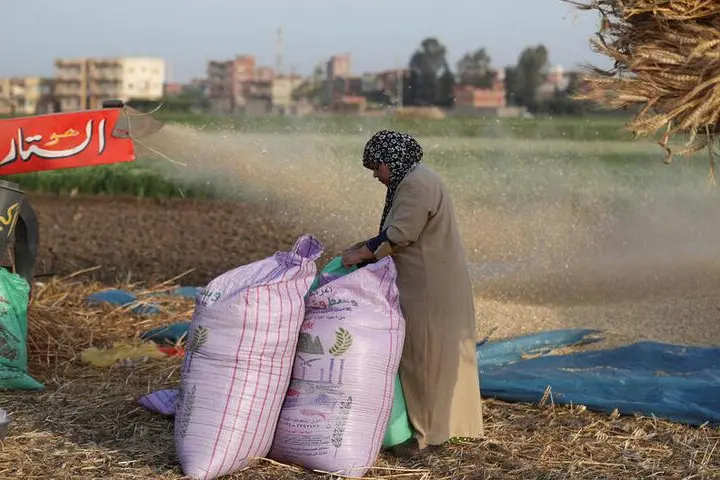PHOTO
CAIRO/DUBAI - Leading global wheat buyer Egypt has raised purchases by almost 40 percent year on year in the first two months of its buying season, with its supply ministry still instructed to keep six months of strategic reserves in response to COVID-19.
Between July and August, Egypt bought 2.4 million tonnes of wheat from international suppliers compared with 1.72 million tonnes purchased during the same period last year.
"In light of instructions by the political leadership we are keeping a strategic reserve of no less than six months of essential goods," the ministry said in a written response to Reuters questions about increased buying.
"This has had a big effect in the past months in securing stocks of various goods as a pre-emptive step in light of the COVID-19 crisis that has spread around the world."
Egyptian President Abdel Fattah al-Sisi first instructed authorities to bolster strategic reserves in March as global food security concerns rose and supply chains experienced disruption when lockdowns were imposed to contain the pandemic.
Egypt's state grains buyer, the General Authority for Supply Commodities (GASC,) has tendered for wheat on a near-weekly basis over the past two months.
"International prices have been rising steadily since mid-August and I think Egypt has decided to front-load seasonal purchases, getting supplies in the silos before the prices rise further," one European trader said.
Around 85.4% of the wheat purchased by GASC from July-August 2020 was Russian, Reuters calculations based on trade data show.
Russia, one of the world's biggest wheat exporters, has said it could impose a grain export quota in the first half of 2021, a mechanism piloted in Q2 2020 as a response to COVID-19, if there is a need to secure domestic supplies.
Russia, which previously said it would decide on the January-June quota in October, is not rushing to a decision as the 2020 crop is large, two Russian industry sources said.
Asked if it was concerned about potential quotas, the supply ministry said it always has alternative scenarios when creating its import plan, "to deal with any circumstances or global changes to the world market."
"Egypt can and is buying a lot of wheat from Russia. The trouble is that other importing countries are buying from Russia too because of smaller export supplies from France, Ukraine and Romania," one trader said.
GASC may be eyeing other regional powerhouses, including Turkey and Pakistan, seeking to book its cargoes before quantities dry up, another market source said.
(Additional reporting by Polina Devitt in Russia and Michael Hogan in Hamburg ; graphic by Yousef Saba; Writing by Nadine Awadalla; Editing by Veronica Brown and David Evans) ((Nadine.Awadalla@thomsonreuters.com;))





















